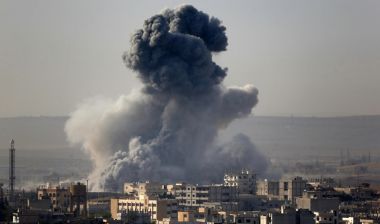US spending billions in fight against ISIS despite 'lack of clear strategy'

The US government has already spent more than $2 billion on its campaign against the Islamic State since last year despite increasing concerns over the lack of a coherent strategy to defeat the militant group, which seeking to carve out its very own caliphate in the Middle East.
Figures from Pentagon show that the operations have cost American taxpayers over $2.4 billion from August last year to early June, or about $9.1 million a day, Fox News wrote. The daily cost includes the price of equipment, munitions and military pay.
The bulk of the funds have gone to the Air Force, amounting to $1.8 billion or 67 percent of the total, highlighting the significance of airstrike missions.
The Navy and the Army got $438 million and $274 million, respectively, as of last week. Flights for daily raids and surveillance cost $5 million daily.
Special Operations Command obtained $700,000 or 7 percent of the allocation.
The operational costs only form part of the bigger picture, as airstrike missions and military training are just two of the nine-point strategy against ISIS, a plan that involves other departments, Pentagon officials told Congress earlier
The fight against the Islamist extremists will take years, US administration officials said.
"Nobody said this is going to be easy," said State Department spokesman John Kirby. "We've long said three-to-five years, and I think we still hold to that."
"Fighting wars costs a lot of money," Democratic strategist Joe Lestingi. "The biggest price we haven't paid yet is 4,000 lives. So when we talk about putting troops on the ground, don't forget that those lives have value and we need to respect that."
Meanwhile, lawmakers are questioning not only the legality and funding for the war but also the strategy.
"I remain deeply concerned that this new deployment is disconnected from any coherent strategy to defeat," said Sen. John McCain, R-Ariz., in a statement, after the White House said 450 more US troops would be sent to Iraq to train local forces.
"Nearly a year since US air strikes began, we still have no strategy, we are losing time, and (ISIS) has regained the operational initiative."
So far, Congress has not yet blocked the US mission, with the resolution for the withdrawal of troops by Rep. James McGovern, D-Mass., being defeated in the House in a 288-139 vote on Wednesday.
"For over 10 months the United States has been engaged in hostilities in Iraq and Syria without debating an authorisation for this war," McGovern said in a speech in the House. "This is unacceptable."
The U. Department of Defence's budget increased by 31 percent to around $502 billion last year from 2000 levels, data from the Congressional Budget Office showed.
The wars in Iraq and Afghanistan, when combined, would cost taxpayers $4 trillion to $6 trillion, according to a 2013 study by a Harvard University researcher. By the time the study was published, the US already spent $2 trillion on both conflicts, Newsweek reported.











